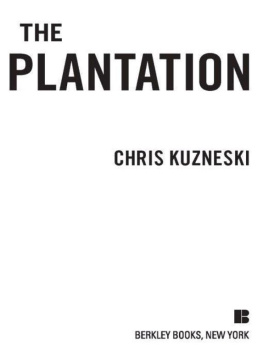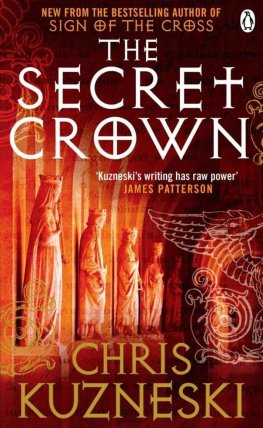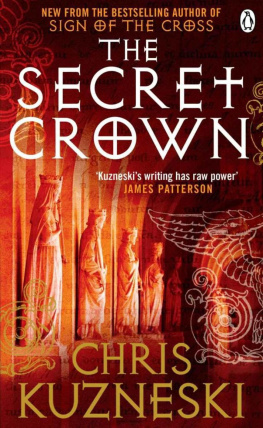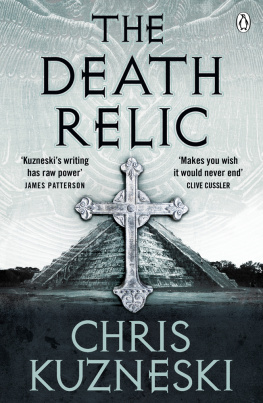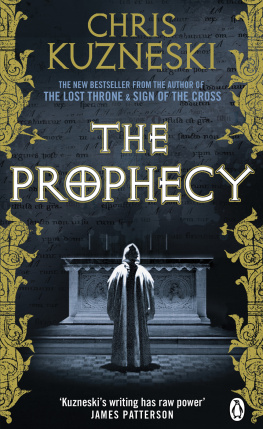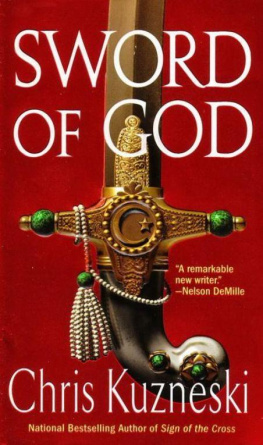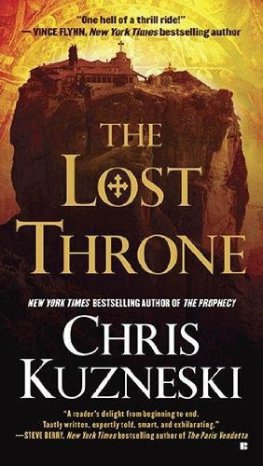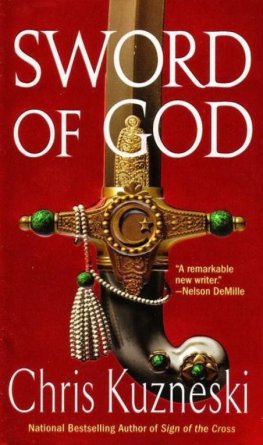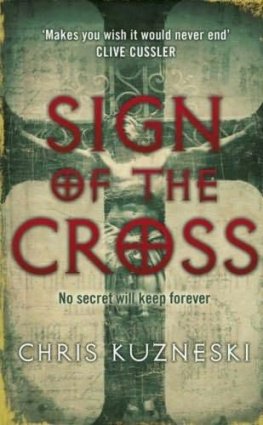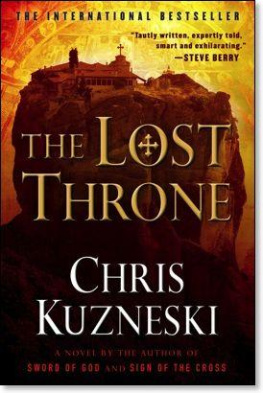Chris Kuzneski - The Hunters
Here you can read online Chris Kuzneski - The Hunters full text of the book (entire story) in english for free. Download pdf and epub, get meaning, cover and reviews about this ebook. genre: Detective and thriller. Description of the work, (preface) as well as reviews are available. Best literature library LitArk.com created for fans of good reading and offers a wide selection of genres:
Romance novel
Science fiction
Adventure
Detective
Science
History
Home and family
Prose
Art
Politics
Computer
Non-fiction
Religion
Business
Children
Humor
Choose a favorite category and find really read worthwhile books. Enjoy immersion in the world of imagination, feel the emotions of the characters or learn something new for yourself, make an fascinating discovery.

- Book:The Hunters
- Author:
- Genre:
- Rating:3 / 5
- Favourites:Add to favourites
- Your mark:
- 60
- 1
- 2
- 3
- 4
- 5
The Hunters: summary, description and annotation
We offer to read an annotation, description, summary or preface (depends on what the author of the book "The Hunters" wrote himself). If you haven't found the necessary information about the book — write in the comments, we will try to find it.
The Hunters — read online for free the complete book (whole text) full work
Below is the text of the book, divided by pages. System saving the place of the last page read, allows you to conveniently read the book "The Hunters" online for free, without having to search again every time where you left off. Put a bookmark, and you can go to the page where you finished reading at any time.
Font size:
Interval:
Bookmark:

Chris Kuzneski
The Hunters
Railroads of Eastern Europe
Prologue
Friday, December 15, 1916
Iasi, Romania
(246 miles north of Bucharest)
The biggest theft in modern history didnt occur at a bank. It happened in a train station in the dead of night, under the watchful gaze of armed soldiers.
Amazingly, no one knew it was a robbery until years later.
And by then, the treasure had been stolen again.
It was miserably cold as Bela Dobrev left the three-story building where he and his wife lived in a small, second-floor apartment. The streets were empty at this late hour, and the wind from the northeast carried the damp, dreadful smell of the Prut River. He pulled his new wool scarf higher on his face, over his full mustache to the bridge of his nose. He was grateful his wife had given him this Christmas gift early. The winter was unforgiving, the odors of sewage even worse. At least in the summer the winds tended to blow from the south.
From the moment he started out for his evening shift, he walked with his eyes downcast to protect them from the incessant wind. He did not have to look up to walk the three blocks to the sprawling station. He had worked there for over forty years, since the proud, palatial structure had opened in 1870. He knew the cobbled roadways stone by stone. He remembered when a carthorse had stumbled and broken this one, when an axe had fallen from a laborers backpack and cracked that one. He remembered it all.
A block from the station, Dobrev smiled beneath the scarf, the bristles of his mustache prickling his upper lip. It was then that he always smelled the first, faint scent of the lubricants used to oil the trains. Crawling under the big locomotives to apply grease to the wheel hubs had been his first job here. That scent invariably took him back to a more innocent era. They were good times, when cities were being united by rail and each new arrival brought a sense of wonder, not dread. When the new year had brought hope and happy reflection, rather than fear of invading armies and the ghastly horrors of war.
Dobrevs gloved hands held the collar of his worn overcoat to his throat. His newly mended socks kept his heels warm, though his toes were starting to tingle from the cold. He quickened his pace, his eyes narrowing as he heard unfamiliar sounds coming from the tracks. He was accustomed to the clatter of unwieldy crates, to heavy machinery being loaded onto flatbeds by screeching mobile cranes, to the clomping of hooves as horses pulled baggage carts. But he had never heard so many sounds, so much activity, especially this late at night. His mind spun at the thought of the wages the stationmaster would have to pay but for what?
He looked up and saw rows of canvas-backed military trucks parked nose-in along the platform. That was not unusual: troops in their light-gray uniforms came and went from Iasi, heading to the frontier. In the late summer they came from Bucharest, but the city was now in German hands. More and more they were returning to Iasi from combat, along with crowds of refugees fleeing typhus outbreaks. These months since Romania had joined the war were the only time in Dobrevs married life that he and his wife were glad his only child had moved away. The sorrow in the homes of his neighbors was difficult enough to witness.
Cold as he was, Dobrev did not go straight to the cathedral doorways that fronted the towering facade. His curiosity wouldnt allow it.
This contingent was different from any he had seen. There were troops just beyond the parked convoy, but they were fresh and facing the street, holding rifles with fixed bayonets across their chests. Beyond them, illuminated by the hooded lamps that lined the platform, a train jutted far beyond both sides of the building. That was unprecedented. The tops of the cars were wrapped in steam from the locomotive. The train was active, ready to move at any moment. Given the cost of coal during winter during wartime this was most surprising.
Dobrev went to the west side of the terminal where, shielded from the wind, he lowered his scarf and wiped his tearing eyes with his sleeve. He saw boxcar after boxcar, twenty-one in all. On the platform beside them were dozens of crates, stacked in columns, with armed soldiers massed around each, but nowhere on the military train did he see the red, yellow, and blue flag of Romania.
The soldier nearest him took several steps toward him. He wore the insignia of a pigeon messenger. That was unusual too. In four months, Dobrev had never seen those troops as part of a guard detail. They were generally assigned to priority missions.
What is your business? the soldier asked curtly. His cheeks were red. They did not look old enough to support a beard.
I am the assistant stationmaster, Dobrev told him. I am beginning my shift.
Begin it inside, the young man told him.
Im about to, Dobrev said. But Im wondering there was nothing about a train this size on the sched-
Inside, Assistant Stationmaster, the soldier ordered, shifting his rifle nervously so the bayonet was angled downward.
Dobrevs eyes lingered on the young man a moment longer. Then he raised a gloved hand in surrender, took a last look at the spectacle, and turned away. That exchange had told him more about the war than any of the reports in the newspapers. The situation was desperate when a young Romanian talked to an elder Romanian with no show of respect. Even youths from the capital had better manners.
This boy was tense, afraid.
Dobrev walked back to the front of the station. He noticed that the treads of the trucks were badly worn. This too was an indication that things were going poorly.
What an ill-advised venture, he thought as he neared the door.
Romania had joined the war on the side of Russia, France, and England in order to seize Transylvania from the Austro-Hungarian Empire. Most of the people Dobrev talked to thought that was a waste of men and resources. The population in Transylvania was already largely Romanian. Did it matter who actually owned the high, daunting mountain ranges?
Dobrev stopped abruptly. He saw something on the ground beside one of the bare truck tires, a flash of golden light. He shuffled over and picked it up.
It was a valuable, twenty lei gold coin issued in 1868. Dobrevs first thought was that it had probably been dropped by a harried passenger. The wealthy often departed by train for day trips to country estates. Mishaps like this occurred when they eagerly pulled gloves from their coats, searched with panic for misplaced tickets, or checked a pocket watch to see if they had time to visit the bar. As a youngster, Dobrev used to supplement his income handsomely with dropped coins. French francs, Turkish lire, and once a silver Russian ruble. Local coins were not as highly prized as foreign coins, which always seemed to be rising in value.
But he had never found a coin of gold.
Feeling a flush of warmth, as if he had just downed a nice plum brandy, he stood and tucked the coin in a pocket that he knew did not have a hole. Then, fueled by his good fortune, he decided to push his luck. Standing just out of view of the soldiers, Dobrev peeled back the corner of the canvas and peered inside the back of the truck. The space was empty, except for two benches along the sides, a few crowbars on the floor, and a pile of bent nails.
The cargo has been opened, but why?
For an official examination? Or something criminal?
As he walked into the station, Dobrev considered the possibilities. Glancing east, he stared at the powerful locomotive. He pondered the significance of the guarded cargo, the pigeon messengers to signal its progress, and the unscheduled departure in the dead of night.
Next pageFont size:
Interval:
Bookmark:
Similar books «The Hunters»
Look at similar books to The Hunters. We have selected literature similar in name and meaning in the hope of providing readers with more options to find new, interesting, not yet read works.
Discussion, reviews of the book The Hunters and just readers' own opinions. Leave your comments, write what you think about the work, its meaning or the main characters. Specify what exactly you liked and what you didn't like, and why you think so.

